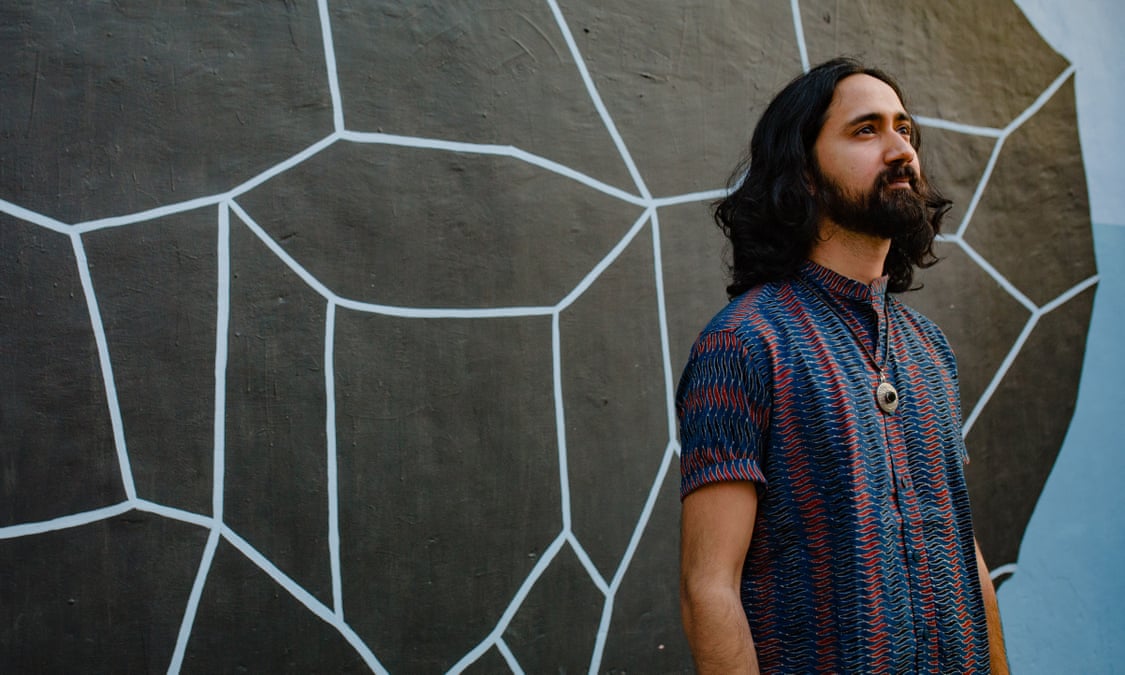- UID
- 20
- Online time
- Hours
- Posts
- Reg time
- 24-8-2017
- Last login
- 1-1-1970
|
|
━━━━━━━━━━━━━━━━━
With his second studio album – a ‘modern brown record’ – the producer is challenging perceptions of Indo-jazz. But in the face of racism and tokenism, it can be exhausting.

Sarathy Korwar: ‘We got to headline festivals, but we hadn’t paid our dues.’ Photograph: Rishabh Sood
▼ Sarathy Korwar likes to define himself as an “outsider”. Outside popular music, outside the British Asian experience, outside Indian culture. The percussionist and producer blends Indian classical orchestration with free-jazz improvisation and, now, hip-hop.
“I went from being in a position of privilege in India, growing up middle-class and upper-caste, to moving to London a decade ago and seeing myself as a minority for the first time,” he says in his recording studio in Kilburn – a soundproofed shed formerly owned by the folk guitarist Bert Jansch.
“In 2016, I put my first album out on Ninja Tune and suddenly there was all this interest from kids in India who follow labels here. We got to headline festivals in India that we had no right to be headlining,” he says, laughing. “We hadn’t paid our dues yet; it was purely because people still have this image of the west being superior.”
For his second album, in 2018, Korwar took explicit aim at these assumptions with a live reimagining of “spiritual jazz” classics, calling it My East Is Your West. Critical acclaimaccompanied the headline slots and Korwar found he had become a spokesperson for cultural appropriation. “Spiritual jazz is a problematic term for me,” Korwar says. “I love people like Alice Coltrane, Don Cherryand Pharoah Sanders, but it was always unsettling listening to them because of their tokenistic nod to the ‘east’ or Africa – this idea that anywhere east of where you are is a repository of knowledge which you can learn half-heartedly and then apply to your playing. So much of Indo-jazz is about borrowing some out-of-tune sitar or badly played tabla – I had to change that.”
Korwar has often had his own work described as spiritual. “It’s always the subtle things that get to me here, which you get better at noticing as being racist,” he says. “I remember being called a (▪ ▪ ▪)
► Please, continue reading this article here: Source |
|